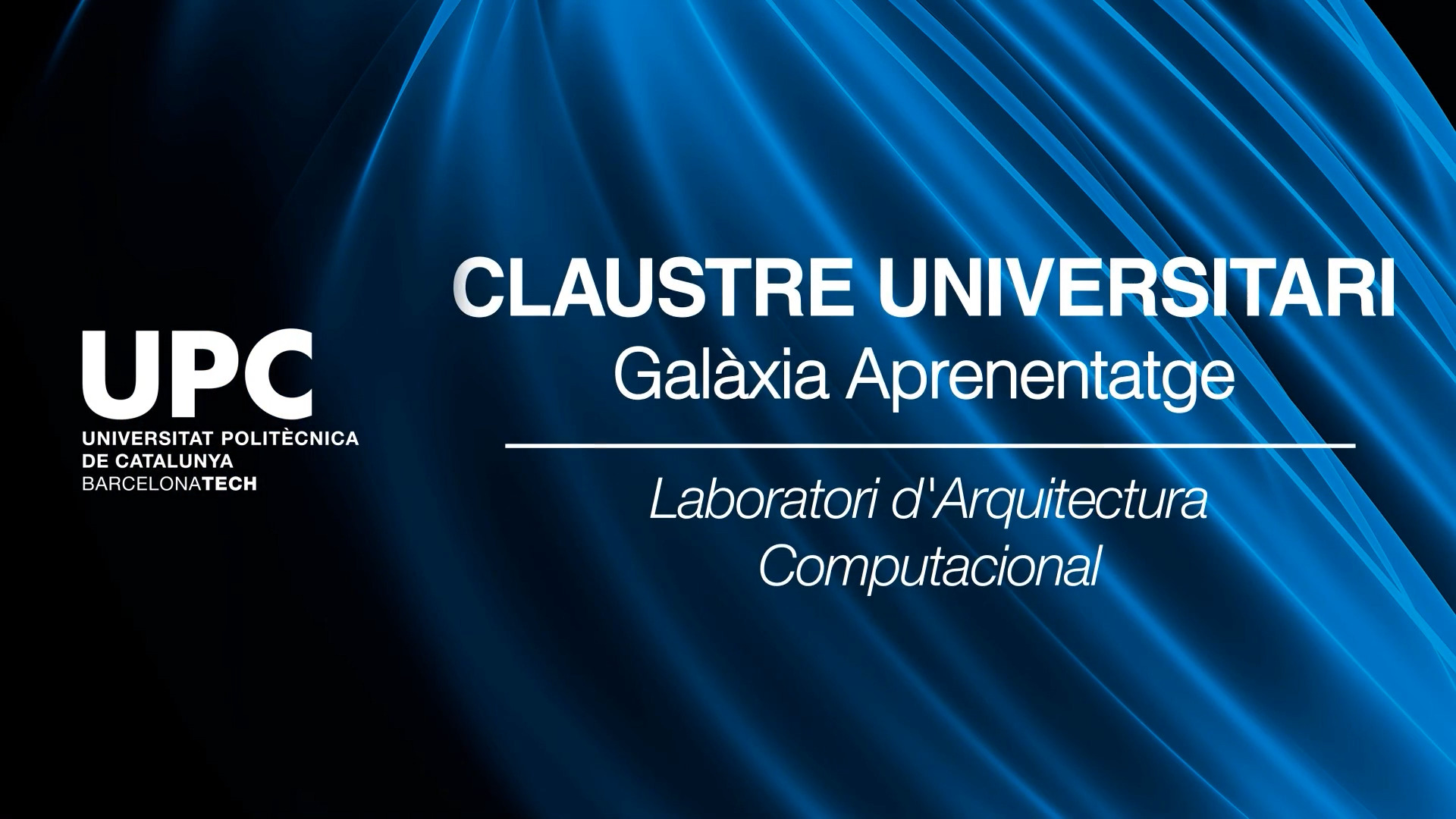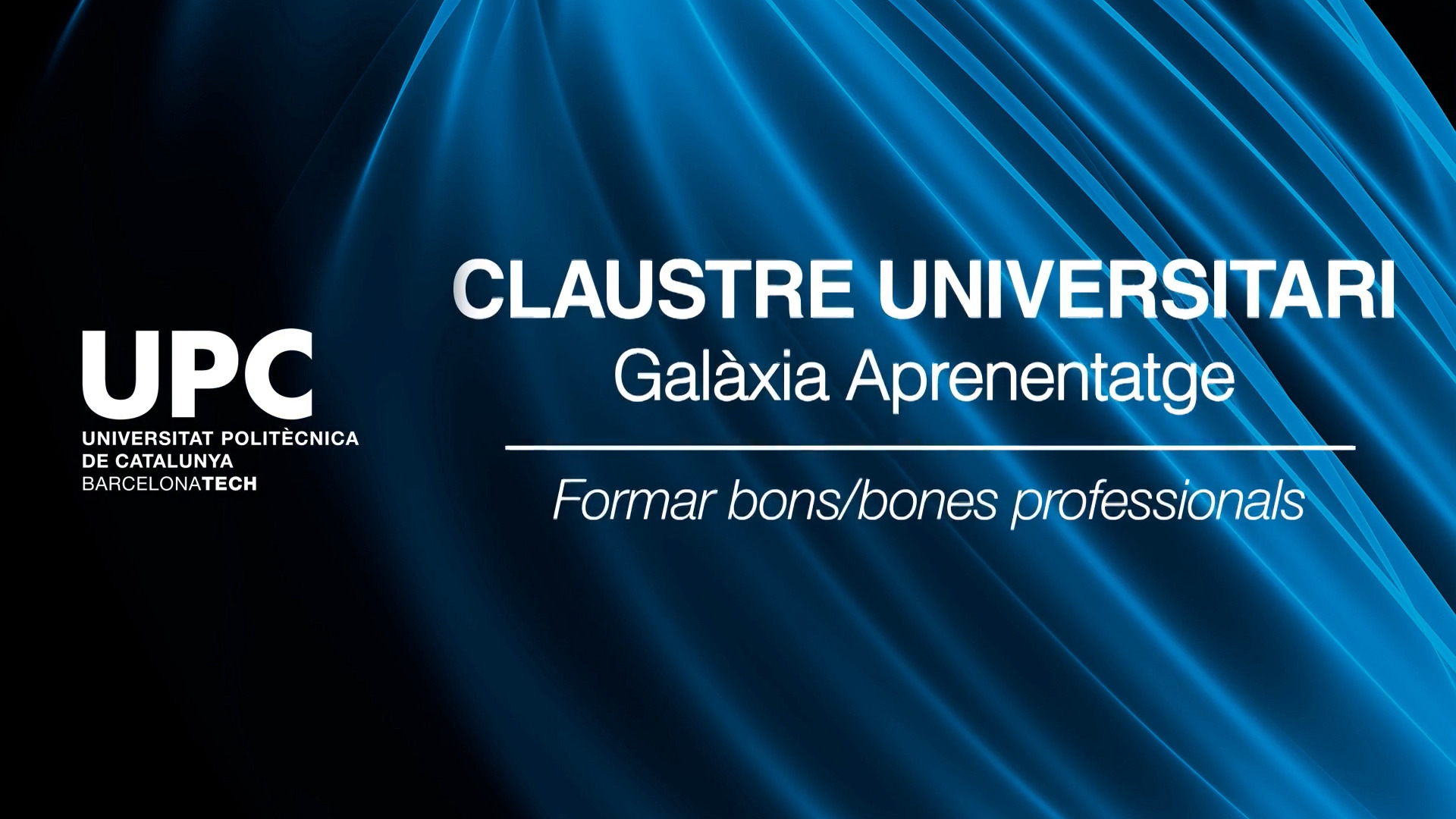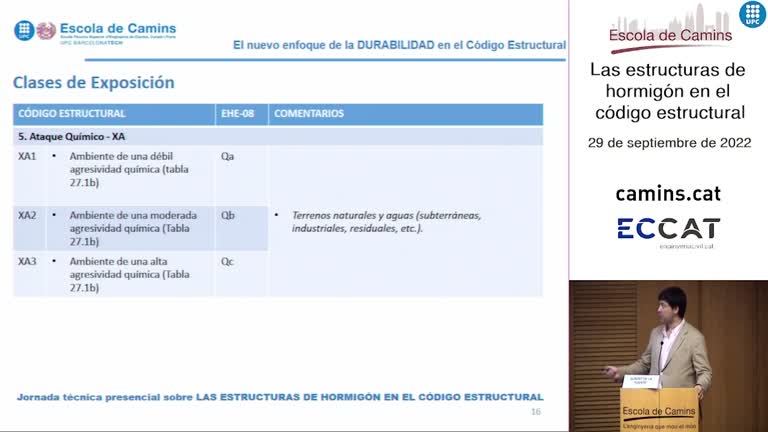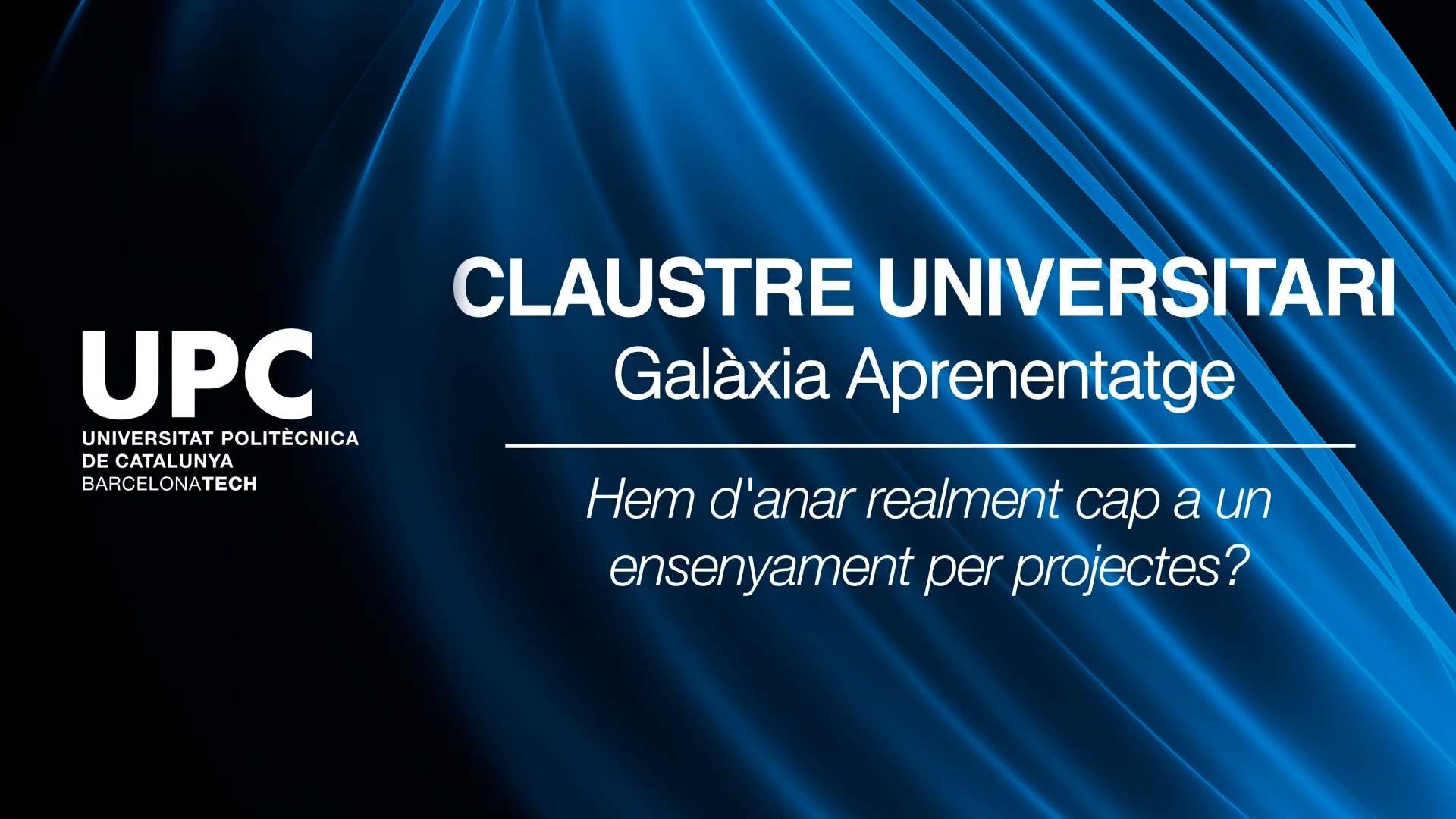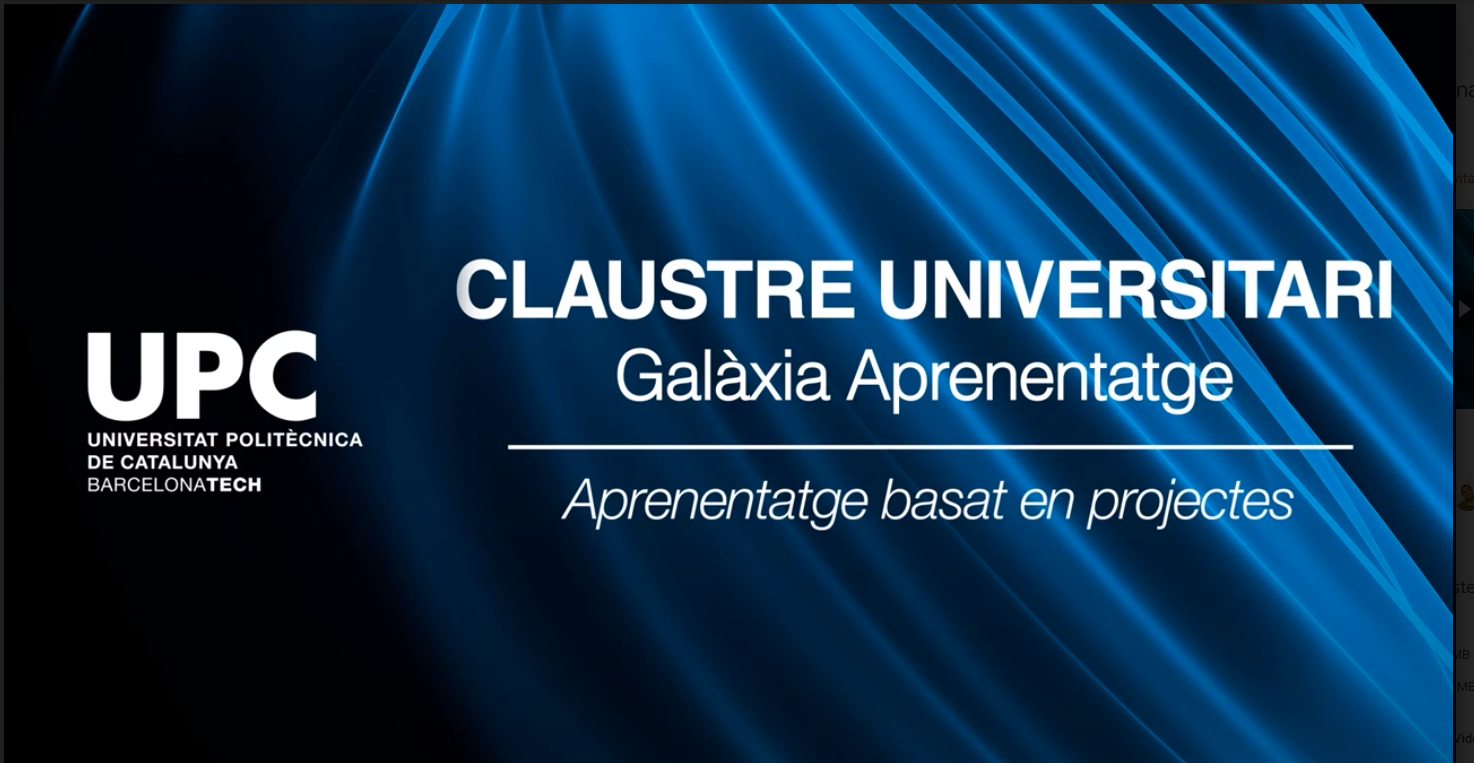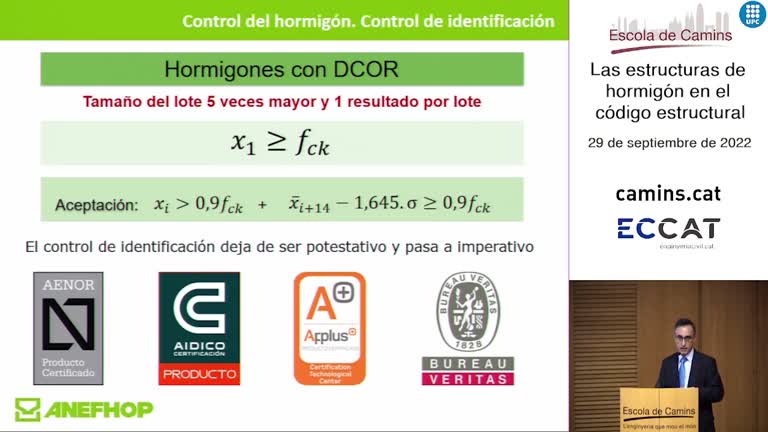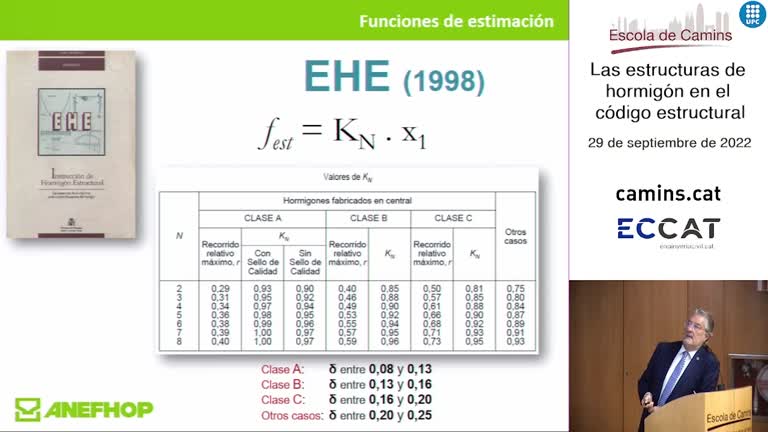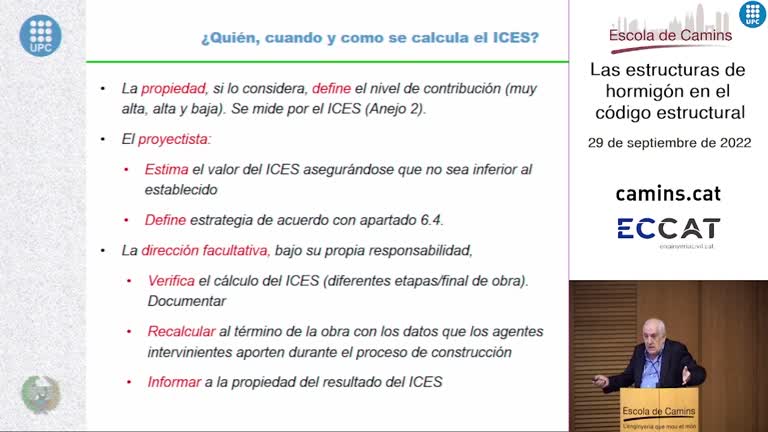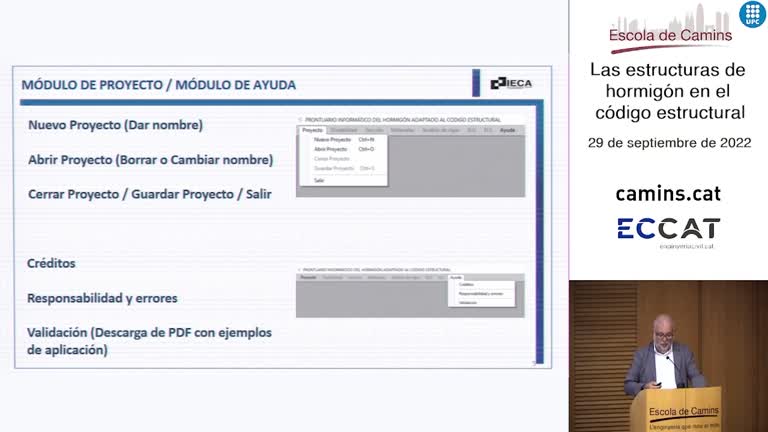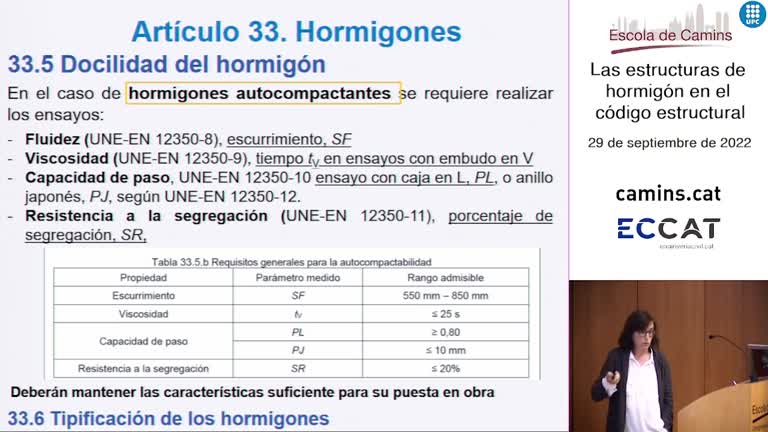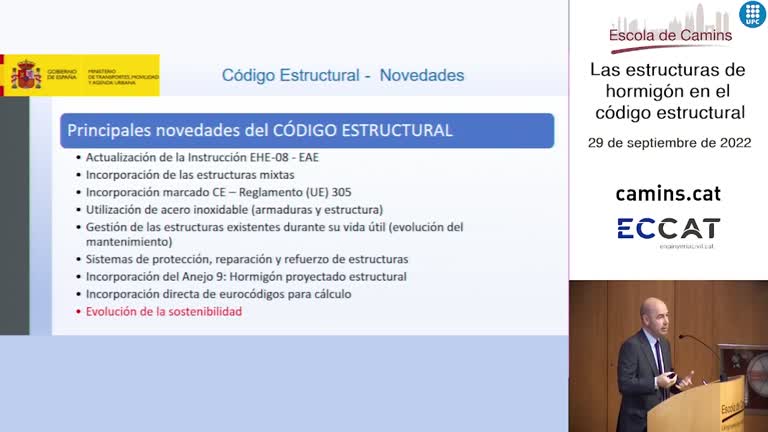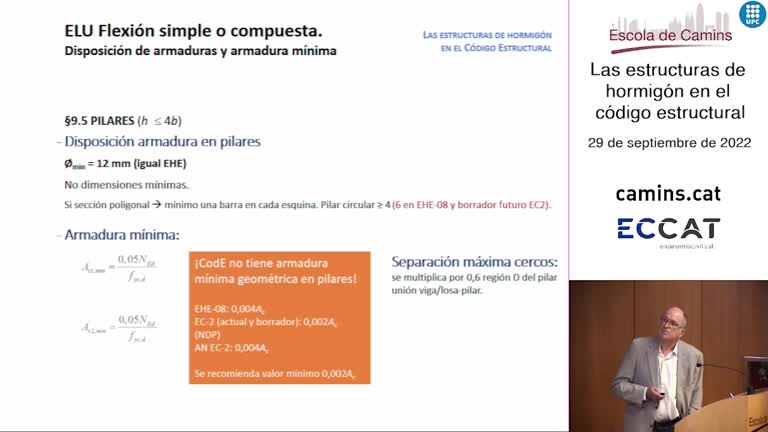Objectes multimèdia amb l’etiqueta: Departaments
Resultats de la cerca
ETSAB: Laboratori d'Arquitectura Computacional
Accés obert
29 de set. 2022
Presentació de l'experiència de la nova assignatura 'Laboratori d'Arquitectura Computacional' a l'Escola Tècnica Superior d'Arquitectura de Barcelona (ETSAB), amb la participació dels Departaments de Representació Arquitectònica, Projectes Arquitectònics i Tecnologia de l'Arquitectura.
La reflexió i el debat sobre l’experiència d’aprenentatge a la Universitat i les línies estratègiques per a un nou model docent centren el Claustre Universitari de la UPC, els dies 4 i 7 d’octubre.
La reflexió i el debat sobre l’experiència d’aprenentatge a la Universitat i les línies estratègiques per a un nou model docent centren el Claustre Universitari de la UPC, els dies 4 i 7 d’octubre.
Eva Vidal: Formar bons i bones professionals
Accés obert
29 de set. 2022
Eva Vidal López, professora de l'Escola Tècnica Superior d'Enginyeria de Telecomunicació de Barcelona (ETSETB) i del Departament d'Enginyeria Electrònica, explica una experiència d'innovació docent.
La reflexió i el debat sobre l’experiència d’aprenentatge a la Universitat i les línies estratègiques per a un nou model docent centren el Claustre Universitari de la UPC, els dies 4 i 7 d’octubre.
La reflexió i el debat sobre l’experiència d’aprenentatge a la Universitat i les línies estratègiques per a un nou model docent centren el Claustre Universitari de la UPC, els dies 4 i 7 d’octubre.
El nuevo enfoque de la durabilidad en el código estructural.
Accés obert
29 de set. 2022
La Plataforma Tecnológica Española del Hormigón y el Instituto Español del Cemento y sus Aplicaciones, con el apoyo de la Escuela de Caminos, el Colegio de Ingeniería Técnica de Obras Públicas y de Ingeniería Civil y el Colegio de Ingeniería de Caminos, Canales y Puertos organizó una jornada técnica sobre el Código Estructural.
Ponencia realizada por Albert De La Fuente, profesor agregado del Departamento de Ingeniería Civil y Ambiental de la UPC
Ponencia realizada por Albert De La Fuente, profesor agregado del Departamento de Ingeniería Civil y Ambiental de la UPC
Lluïsa Jordi: Hem d'anar realment cap a un ensenyament per projectes?
Accés obert
29 de set. 2022
Lluïsa Jordi Nebot, professora de l'Escola Tècnica Superior d'Enginyeria Industrial de Barcelona (ETSEIB) i del Departament d'Enginyeria Mecànica de la UPC, explica una experiència d'innovació docent.
La reflexió i el debat sobre l’experiència d’aprenentatge a la Universitat i les línies estratègiques per a un nou model docent centren el Claustre Universitari de la UPC, els dies 4 i 7 d’octubre.
La reflexió i el debat sobre l’experiència d’aprenentatge a la Universitat i les línies estratègiques per a un nou model docent centren el Claustre Universitari de la UPC, els dies 4 i 7 d’octubre.
Miguel Valero: Aprenentatge basat en projectes
Accés obert
29 de set. 2022
Miguel Valero García, professor de l'Escola d'Enginyeria de Telecomunicació i Aeroespacial de Castelldefels (EETAC) i del Departament d'Arquitectura de Computadors de la UPC, explica una experiència d'innovació docent.
La reflexió i el debat sobre l’experiència d’aprenentatge a la Universitat i les línies estratègiques per a un nou model docent centren el Claustre Universitari de la UPC, els dies 4 i 7 d’octubre.
La reflexió i el debat sobre l’experiència d’aprenentatge a la Universitat i les línies estratègiques per a un nou model docent centren el Claustre Universitari de la UPC, els dies 4 i 7 d’octubre.
Principales novedades en el ámbito de la garantía de calidad. (2/2)
Accés obert
29 de set. 2022
La Plataforma Tecnológica Española del Hormigón y el Instituto Español del Cemento y sus Aplicaciones, con el apoyo de la Escuela de Caminos, el Colegio de Ingeniería Técnica de Obras Públicas y de Ingeniería Civil y el Colegio de Ingeniería de Caminos, Canales y Puertos organizó una jornada técnica sobre el Código Estructural.
Ponencia realizada por José Ángel Alonso, ANEFHOP.
Ponencia realizada por José Ángel Alonso, ANEFHOP.
Principales novedades en el ámbito de la garantía de calidad. (1/2)
Accés obert
29 de set. 2022
La Plataforma Tecnológica Española del Hormigón y el Instituto Español del Cemento y sus Aplicaciones, con el apoyo de la Escuela de Caminos, el Colegio de Ingeniería Técnica de Obras Públicas y de Ingeniería Civil y el Colegio de Ingeniería de Caminos, Canales y Puertos organizó una jornada técnica sobre el Código Estructural.
Ponencia realizada por Juan Eugenio Cañadas, Dr. Arquitecto.
Ponencia realizada por Juan Eugenio Cañadas, Dr. Arquitecto.
Principios de sostenibilidad del código estructural.
Accés obert
29 de set. 2022
La Plataforma Tecnológica Española del Hormigón y el Instituto Español del Cemento y sus Aplicaciones, con el apoyo de la Escuela de Caminos, el Colegio de Ingeniería Técnica de Obras Públicas y de Ingeniería Civil y el Colegio de Ingeniería de Caminos, Canales y Puertos organizó una jornada técnica sobre el Código Estructural.
Ponencia realizada por Antonio Aguado, catedrático emérito del Departamento de Ingeniería Civil y Ambiental de la UPC.
Ponencia realizada por Antonio Aguado, catedrático emérito del Departamento de Ingeniería Civil y Ambiental de la UPC.
Presentación del prontuario informático del hormigón estructural adaptado al código estructural.
Accés obert
29 de set. 2022
La Plataforma Tecnológica Española del Hormigón y el Instituto Español del Cemento y sus Aplicaciones, con el apoyo de la Escuela de Caminos, el Colegio de Ingeniería Técnica de Obras Públicas y de Ingeniería Civil y el Colegio de Ingeniería de Caminos, Canales y Puertos organizó una jornada técnica sobre el Código Estructural.
Ponencia realizada por Sergio Carrascón, director de la Zona Noreste y Canarias del IECA.
Ponencia realizada por Sergio Carrascón, director de la Zona Noreste y Canarias del IECA.
Novedades del código estructural en el ámbito de los materiales.
Accés obert
29 de set. 2022
La Plataforma Tecnológica Española del Hormigón y el Instituto Español del Cemento y sus Aplicaciones, con el apoyo de la Escuela de Caminos, el Colegio de Ingeniería Técnica de Obras Públicas y de Ingeniería Civil y el Colegio de Ingeniería de Caminos, Canales y Puertos organizó una jornada técnica sobre el Código Estructural.
Ponencia realizada por Miren Etxeberria, profesora agregada del Departamento de Ingeniería Civil y Ambiental de la UPC.
Ponencia realizada por Miren Etxeberria, profesora agregada del Departamento de Ingeniería Civil y Ambiental de la UPC.
Visión general del código estructural, nuevo enfoque e importancia.
Accés obert
29 de set. 2022
La Plataforma Tecnológica Española del Hormigón y el Instituto Español del Cemento y sus Aplicaciones, con el apoyo de la Escuela de Caminos, el Colegio de Ingeniería Técnica de Obras Públicas y de Ingeniería Civil y el Colegio de Ingeniería de Caminos, Canales y Puertos organizó una jornada técnica sobre el Código Estructural.
Ponencia realizada por Miguel Ángel Bermúdez, subdirector General de Normativa y Estudios Técnicos, MITMA.
Ponencia realizada por Miguel Ángel Bermúdez, subdirector General de Normativa y Estudios Técnicos, MITMA.
Cambios relevantes en el dimensionamiento de las estructuras de hormigón.
Accés obert
29 de set. 2022
La Plataforma Tecnológica Española del Hormigón y el Instituto Español del Cemento y sus Aplicaciones, con el apoyo de la Escuela de Caminos, el Colegio de Ingeniería Técnica de Obras Públicas y de Ingeniería Civil y el Colegio de Ingeniería de Caminos, Canales y Puertos organizó una jornada técnica sobre el Código Estructural.
Ponencia realizada por Antonio R. Marí, catedrático del Departamento de Ingeniera Civil y Ambiental de la UPC.
Ponencia realizada por Antonio R. Marí, catedrático del Departamento de Ingeniera Civil y Ambiental de la UPC.


